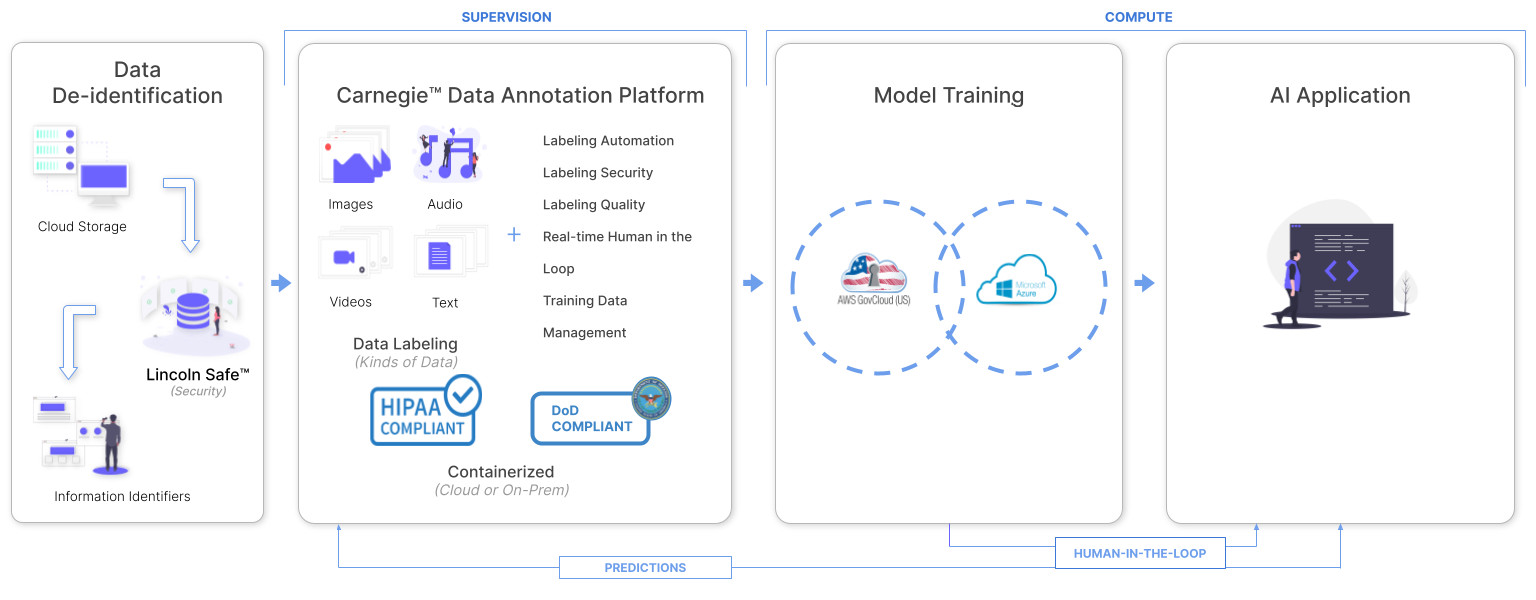Lincoln Safe™
Revolutionary AI-driven data transformation platform for secure preparation of sensitive data.
Safeguard Sensitive Data for Machine Learning Tasks.
Lincoln Safe™ allows agencies to share confidential datasets with third-party stakeholders while protecting the privacy of the elements and subjects of the source data while reducing regulatory risks.
The Lincoln Safe™ de-identification process preserves the utility of confidential datasets while reducing the risk of exposure through automated obfuscation of raw sensitive identifiers. This process includes suppressing or masking data elements that are contained in the metadata as well as redacting the text that is displayed in a pixel-based representation.
Lincoln Safe™ de-identification pipelines secure end-to-end data usage.
Risk Mitigation
To minimize the risk of handling large volumes of sensitive data, Lincoln Safe™ utilizes an automated data transformation pipeline to create de-identified replicas.
Information Detectors
Lincoln Safe™ automatically detects and classifies sensitive data using over 80 built-in information & visual detectors as well as extensible custom types for any non-standard data scenarios.
Supported De-identification Techniques
Lincoln Safe™ enables transformations such as redaction, masking, tokenization, and bucketing.
Built-in Security
Lincoln Safe™ has built-in security measures to facilitate data security, including encryption of stored data as well as data in transit.
Deployable In The Cloud or On-Premise.
Lincoln Safe™ is currently offered as a scalable, containerized application on the AWS GovCloud for high-availabilty. A licensable version is currently in alpha release stage for on-premise use.

Guaranteed De-Identification of Images, Video, Text and Audio.
Lincoln Safe™ reduces
the re-identification risk to nearly zero.
Researchers, Data Scientists, IT, and Healthcare organizations use the Lincoln Safe™ platform to remove personally identifying information (PII), protected health information (PHI), and unique facial biometrics to ensure data privacy and anonymity for use in research, data sharing, and machine learning.
